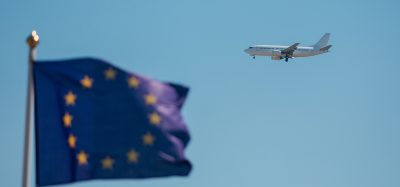A new chapter for aviation
- Like
- Digg
- Del
- Tumblr
- VKontakte
- Buffer
- Love This
- Odnoklassniki
- Meneame
- Blogger
- Amazon
- Yahoo Mail
- Gmail
- AOL
- Newsvine
- HackerNews
- Evernote
- MySpace
- Mail.ru
- Viadeo
- Line
- Comments
- Yummly
- SMS
- Viber
- Telegram
- Subscribe
- Skype
- Facebook Messenger
- Kakao
- LiveJournal
- Yammer
- Edgar
- Fintel
- Mix
- Instapaper
- Copy Link
Posted: 24 February 2017 | Violeta Bulc | No comments yet
EU Commissioner for Transport, Violeta Bulc, launches International Airport Review’s 2017 Leaders’ Series with an overview of the ICAO historic agreement to reduce international aviation emissions.
The contribution of aviation to Europe’s economy is undisputable. The sector supports five million jobs and contributes €110 billion to the EU’s GDP every year. It is also essential for our mobility: 920 million passengers travelled by air in the EU in 2015 alone. Aviation, however, poses a growing threat to the environment and as air traffic increases worldwide, so do emissions. This pinpoints the reason why the agreement reached in October 2016 by the Assembly of the International Civil Aviation Organisation (ICAO) is so important.
I had the privilege of heading the delegation of the European Union during the negotiations in Montreal. As was the case in Paris during COP21, the European Union was a key driving force behind the agreement. Europe spoke with one voice to the Assembly, as well as to the other delegations, and we managed to repeat the positive momentum generated at the COP21. At a time when the European spirit was tested by some unprecedented challenges, it was heartening to see European solidarity and unity at its best in Montreal.
The deal opens a new chapter in the history of aviation; one where sustainability finally becomes part of the way we fly. As of 2021, 66 states – including all Europeans – will be covered by a Global Market-Based Measure (GMBM), whereby airlines flying between these countries will offset the growth of their CO2 emissions. 18 of the 20 largest aviation nations are in from the start in 2021. Others will come on-board during the mandatory phase in 2027. Some say the deal is not ambitious enough and while it may not be perfect, we have managed to set a process in motion, which will not be reversed. We secured a strong review clause that will ensure we are regularly given the chance to improve the GMBM and make it more robust and ambitious.
The broader significance of this deal should not be overlooked either. It is the first-ever globally binding agreement to address CO2 emissions in a specific sector of the economy. I hope that other sectors, such as international shipping, will follow. Approximately 80% of the growth of emissions above 2020 levels will be offset by the GMBM scheme between 2021 and 2035. It is obviously a very positive development that the aviation industry is moving towards carbon neutral growth. I am convinced that its future competitiveness can only go hand-in-hand with ever greater sustainability. I note with great satisfaction that the airport industry, especially in Europe, is living up to the challenge, in particular via the Airport Carbon Accreditation programme.
Out of the 170 accredited airports worldwide, 113 are located in Europe and of these 24 have reached carbon neutrality. This is an impressive result. Over the next two years, ICAO will lay out the technical rules of the GMBM scheme and the EU will ensure that they meet expectations. In parallel, the Commission is currently analysing the impact of the GMBM in the context of the EU Emissions Trading System (EU ETS) for aviation. Non-European flights were temporarily excluded from the scope of the EU ETS in 2013 (“stop the clock”) and we will shortly need to decide if this exclusion should be prolonged beyond 2016.
However, a market-based measure alone will not be enough to significantly reduce aviation emissions. Complementary measures such as aircraft technologies, operational improvements and sustainable alternative fuels are equally important if we are to effectively kerb CO2 emissions from aviation. There again, I know that we can count on the commitment of the airport community. In recent years the European Commission tabled some important initiatives such as the Single European Sky 2+ and revised rules for the allocation of slots at European airports. I sincerely hope that there will be some breakthrough on these files in 2017. All in all, we may have achieved a lot in Montreal but it is still far from mission accomplished.
About Violeta Bulec




















